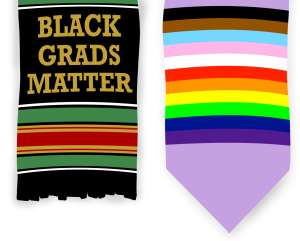Beginning this semester, UTSA faculty will be allowed to assess plus or minus versions of the former A through D grading scale to students. A plus grade will increase GPA point value by 0.33 and a minus will decrease the point value by the same amount from the letter value.
This new system exactly duplicates UT Austin’s system and comes after years of back-and-forth between UTSA’s provost, John Frederick, faculty and the students of UTSA.
After votes in the Faculty Senate ended with less than the required percentage of votes to pass, Frederick and the Senate opted to pursue a “permissive policy” rather than a “restrictive one.” This policy allows faculty who wish to use the system to implement it without requiring other faculty to do the same.
The permissive nature of the policy aside, it has received mixed opinions.
Dorothy Flannagan, vice provost and dean of the graduate school, said that she is very open to the adoption of the plus/minus system. She said that “as a faculty member and as an administrator, I’m perfectly willing to try it and see.”
Sandy Norman, department chair for the math department, found the permissive nature of the policy “odd yet refreshing.”
However, there have been many concerns raised by different parties concerning the new grading policy and how it might negatively affect students and faculty.
Carola Wenk, the current Faculty Senate chair, said that through the process of presenting the plans for a plus/minus grading system the Senate was not given many details for how the system would work or be implemented. “We were shown a very brief, very vague PowerPoint of the proposed system.” Wenk continued by saying that the provost’s office decided the details of the system.
In response to Wenk’s concerns, Frederick said “that’s what tends to happen.” He added that he “tried to get the senate to give as much of a sense of how it should be implemented as possible.”
One of the most universal concerns held by faculty and students is that the system should be equitable.
As it is written, the system could potentially lead to students taking the same course, making the same percentage grade, but be in different sections and getting different GPA scores.
Frederick conceded that with multi-section courses there must be consistency across all the sections. “We have to sacrifice a little bit of academic freedom in order to provide consistent academic standards for students.”
Another fear that faculty and students have expressed is the potential for a deflation in GPAs. Since the new system values an A- at 3.67, a 4.0 GPA will become 33 percent more difficult to earn in any given course. The system will also not include an F+ which could potentially add to the GPA deflation.
Norman fears that this localized deflation around A-grades could result in a decrease in the number of students who qualify for graduation honors such as summa cum laude, which requires a cumulative GPA of 3.9 or higher. Norman points out that with the new system “there are students who would have gotten summa cum laude in the old grading system who might not even get magna cum laude (which only requires a 3.75 GPA) in the plus/minus system.”
Frederick agreed that “it may be we need to recalibrate how we qualify students for those honors” if there ends up being a noticeable shift in the number of students qualifying.
A suggestion, posed by the Student Government Association (SGA), was to grandfather out students who had been at UTSA prior to the switch in grading procedure. However, the provost opted not to support the suggestion, stating that it would be a logistical nightmare.
Although there are a number of concerns with the plus/minus grading policy now, Frederick is certain that after the transitional phase things will settle down. He said that, “over time, even those faculty that felt strongly about it may change their mind.”









